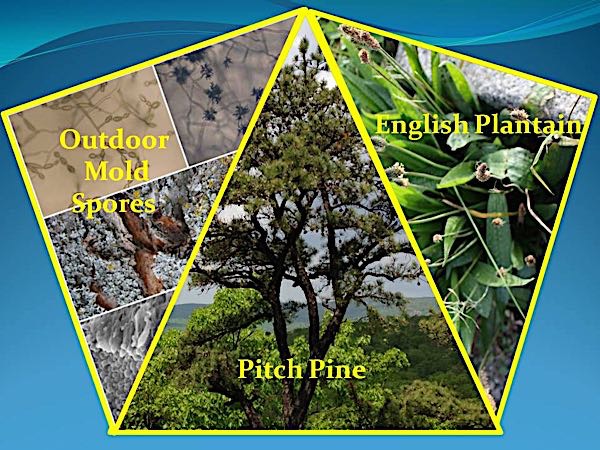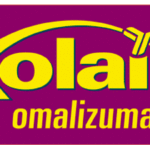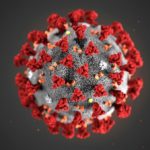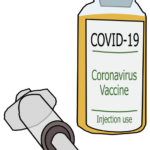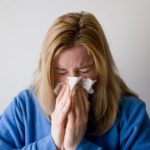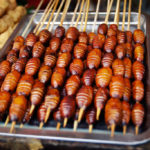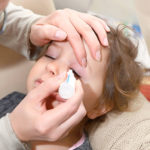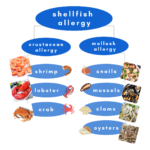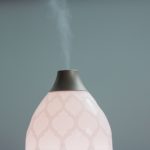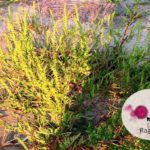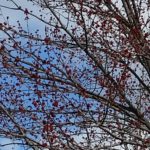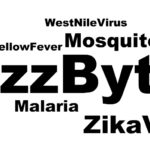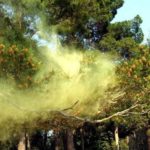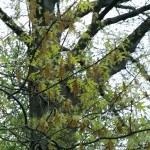allergies, allergy, allergy symptoms, baseball, Dr. Donald Dvorin, eye allergies, eye allergy, grass pollen, memorial day, mold spores, outdoor mold, pine tree pollen, pollen, pollen count, priming effect, The Asthma Center, tree pollen, weed pollen
Pine Past Prime? Still Playing Hardball
For interviews and tours of the Delaware Valley’s only certified pollen and mold spore stations for the National Allergy Bureau (NAB) with stations, please email gwoodlyn@asthmacenter.com
“It looks like we may be past the peak of Pine,” says Dr. Dvorin “but the heat and humidity are also playing a role in pollen distribution. Outdoor mold spores are still very high, approaching extreme levels, and English Plantain weed pollen. When you consider what’s in the air—Pine Tree Pollen, Outdoor Molds, and Weeds plus the weather variable and the priming effect, the outlook is tough if you have allergies & asthma.”
Today’s only official Pollen & Mold Spore Counts for the Delaware Valley:
Overall Tree Pollen volume and Pine Tree Pollen both decreased an estimated 35% today compared to yesterday. At nearly 600 pollen grains per cubic meter of air, tree pollen remains in the Very High range and may continue to provoke moderate to severe symptoms. As a reminder, tree pollen counts of 1000 and above are considered extreme.
Predominant: Pine Tree Pollen alone is nearly 450 today and once again accounts for 75% of all tree pollen currently in the air.
Despite the abundance of pine pollen in our air samples, pine pollen allergy is often ignored.
“For individuals who today are sneezing, itching, have itchy watery eyes and/or other allergy & asthma symptoms, exposure to multiple aeroallergens—what’s in the air—especially pine pollen in our air matters now,” explains Dr. Goldstein. “Pine pollen makes our region unique from an allergy perspective compared to other areas of the Northeastern U.S. where pine pollen is minimal, nonexistent, or other species are prevalent.”
Curious about what makes Pine a powerhouse hitter in the Delaware Valley? Read yesterday’s post “Pine: Star Player Triples – Mold Batting Cleanup”
Grass Pollen has decreased approximately 30% today but remains High. Are you ready?
For tips on Grass Pollen Preparedness, read our 5/9 blog Extreme Tree + More Grass & Molds = Misery Monday
Outdoor Mold Spores have decreased around 13% compared to yesterday. However, at over 5,000 spores per cubic meter of air for 24 hours, outdoor mold spores are very high and continue to have the potential to provoke moderate to severe symptoms. As a reminder, outdoor mold spore counts of 7000 and above are considered extreme. For more on Outdoor Mold Spores and mold allergy, be sure to read our 5/24 blog Rain Brings Trouble As Mold Spores Double
Weed Pollen is low. The only weed pollen in the air today is plantago lanceolata (more commonly known as English Plantain.) For more information on English Plantain, check out yesterday’s blog Pine & Weed Double Header
If you would like to know if pine pollen allergy or English Plantain weed pollen allergy is playing a role in your symptoms, The Asthma Center does routinely test for pine pollen sensitivity and English Plantain weed pollen sensitivity—contact the office location near to schedule an appointment!
The next Pollen & Mold Spore Count Report will be on Tuesday 5/31/2016.
What’s the Ahead?
The Asthma Center would like to take this time to wish all our friends, patients and staff a Happy Memorial Day! This weekend, we remember the men and women in our armed forces who died fighting for our country and thank them for their service.

If you have allergies, asthma, or sinus problems, there are many things to consider as you plan your weekend. Weather variables will play a role concerning what’s in the air. Another important factor to consider is the “priming effect.” The priming effect is set up during the early periods of exposure to pollen (as in the beginning of tree pollen season). Depending on an individual’s level of allergic sensitivity, symptoms typically are experienced with higher levels of pollen. As the season progresses and exposure to the relevant pollen diminishes, “priming” accounts for why less pollen exposure in the air continues to provoke the same allergic misery.” For more on the priming effect and other Q&A, read Dvorin & Goldstein Field Questions: Pollen & Allergy Misery.
How to Get Relief?
With the temps into the 90s this weekend, it’s more likely than not that most time spent during the day will be outside. While we all know protection from the sun is important, allergy sufferers need to take additional precautions against aeroallergens.
Typically, pollen in the air tends to peak around early-morning, causing symptoms to be at their worst then. However, this year we’ve continuously seen a different trend: pollen has been reaching its peak levels around mid-day. If levels rise this weekend, allergy sufferers could be feeling the effects later in the day. Luckily, there are a few ways to mitigate your worst allergy symptoms. Here are some best-practice tips for keeping your weekend allergy free:
- Wear long sleeves and long pants when mowing the grass.
- Sleep with windows closed and drive with windows up (Don’t miss blog Shut the Door, Seal the Windows )
- Beware of tracking grass pollen into your home (kids, pets especially, newspaper sleeves, and on shorts and jackets)
- Shower and wash your hair after extended outdoor exposure
- Wear sunglasses or glasses outdoors to limit exposure of pollen to your eyes
- Avoid wearing contact lenses, or switch to daily disposable contacts to avoid allergens building up on the lenses
- Wash your hands and face frequently, including eyebrows
- Change your pillowcase often
Allergy-Free Gardening
Allergy-sufferers who like to garden or are looking to buy flowers for the holiday weekend may experience difficulty around flowers and other plants in indoor and outdoor garden environments. Fortunately, many flowers produce very little or no pollen. However, it’s important to recognize the few that can cause misery to allergic individuals. Learn more about allergy-free gardening and indoor houseplants/flowers here.
Grass pollen tips / Does the smell of cut grass bother you?
Mowing your lawn regularly can help cut down on the pollination of grasses on your property. However, many people experience allergy symptoms when exposed to the smell of freshly cut grass. Allergic reactions to mowed grass are more likely from the non-pollen parts of the grass containing allergenic proteins or molds being stirred up in the mowing process. When you mow your lawn, allergen concentration of this type will dramatically increase for a short period of time during and immediately after you mow.
So, mowing your lawn will often be beneficial in the long-term, though it may aggravate your allergies short-term. Reactions to cut grass sometimes can go beyond the spring grass pollination season as well. Again, this is not due to grass pollen but from exposure to mold spores or reactions to other grass antigens in the blades of grass.
Next Pollen and Mold Spore Count: Monday 5/31/2016
Be sure to check back in for The Asthma Center’s daily Pollen and Mold Spore Count, the Delaware Valley’s only Official count station which is certified by the National Allergy Bureau. Subscribe to receive our daily counts by email or check out some of our other blog posts to learn more about what is in the air, how it can affect you, and what you can do about it.
Make an appointment to see an allergist – Why Choose Us?
The best way to fight your allergies is to visit a board certified allergist, learn what your allergies are, create a treatment plan, and adjust as needed. No two allergy sufferers are alike, so don’t rely on over the counter medications when you could be targeting your symptoms with the help of our allergy experts! At The Asthma Center, we know that no two individuals are alike, and our goal is to personalize your treatment to help you find relief. We accomplish this through identifying your allergies and specific levels of allergic sensitivity through allergy skin testing to help you plan your treatment. By following the local pollen counts, we are able to customize allergy regimens that prevent symptoms caused by taking too little, or too much allergy medication.
Recent
Popular

